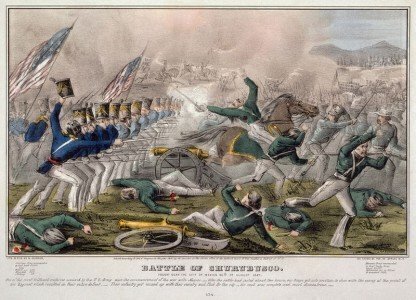May marks two key anniversaries in the conflict between the United States and Mexico that set in motion the Civil War—and led to California, Texas, and eight other states joining the Union.
On May 13, 1846, the United States Congress declared war on Mexico after a request from President James K. Polk. Then, on May 26, 1848, both sides ratified the peace treaty that ended the conflict.
The conflict centered on the independent Republic of Texas, which opted to join the United States after establishing its independence from Mexico a decade earlier.
The new U.S. president, James K. Polk, also wanted Texas as part of the United States, and his predecessor, John Tyler, had a late change of heart and started the admission process before he left office. Polk and others saw the acquisition of Texas, California, Oregon, and other territories as part of the nation’s Manifest Destiny to spread democracy over the continent.
The U.S. also tried to buy Texas and what was called “Mexican California” from Mexico, which was seen as an insult by Mexico, before war broke out.
Mexico considered the annexation of Texas as an act of war. After a series of border skirmishes, President Polk asked Congress for the war declaration because, under Article I, Section 8 of the Constitution, only Congress could declare war.
In the fighting that followed, the mostly-volunteer United States military secured control of Mexico after a series of battles, and the Treaty of Guadalupe Hidalgo was signed on February 2, 1848.
It was the first large-scale success of a United States military force on foreign soil.
Mexico received a little more than $18 million in compensation from the United States as part of the treaty.
The pact set a border between Texas and Mexico and ceded California, Nevada, Utah, New Mexico, most of Arizona and Colorado, and parts of Oklahoma, Kansas, and Wyoming to the United States. Their transfer to the United States’ control also cut the territorial size of Mexico in half.
On the surface, the war’s outcome seemed like a bonanza for the United States. But the acquisition of so much territory with the issue of slavery unresolved lit the fuse that eventually set off the Civil War in 1861. But the underlying issue was how adding new states and territories would alter the balance between free and slave states was critical.
On the battlefield, Robert E. Lee, Ulysses S. Grant, and Stonewall Jackson were among those who served in the war against Mexico who would later gain prominence in the American Civil War.








